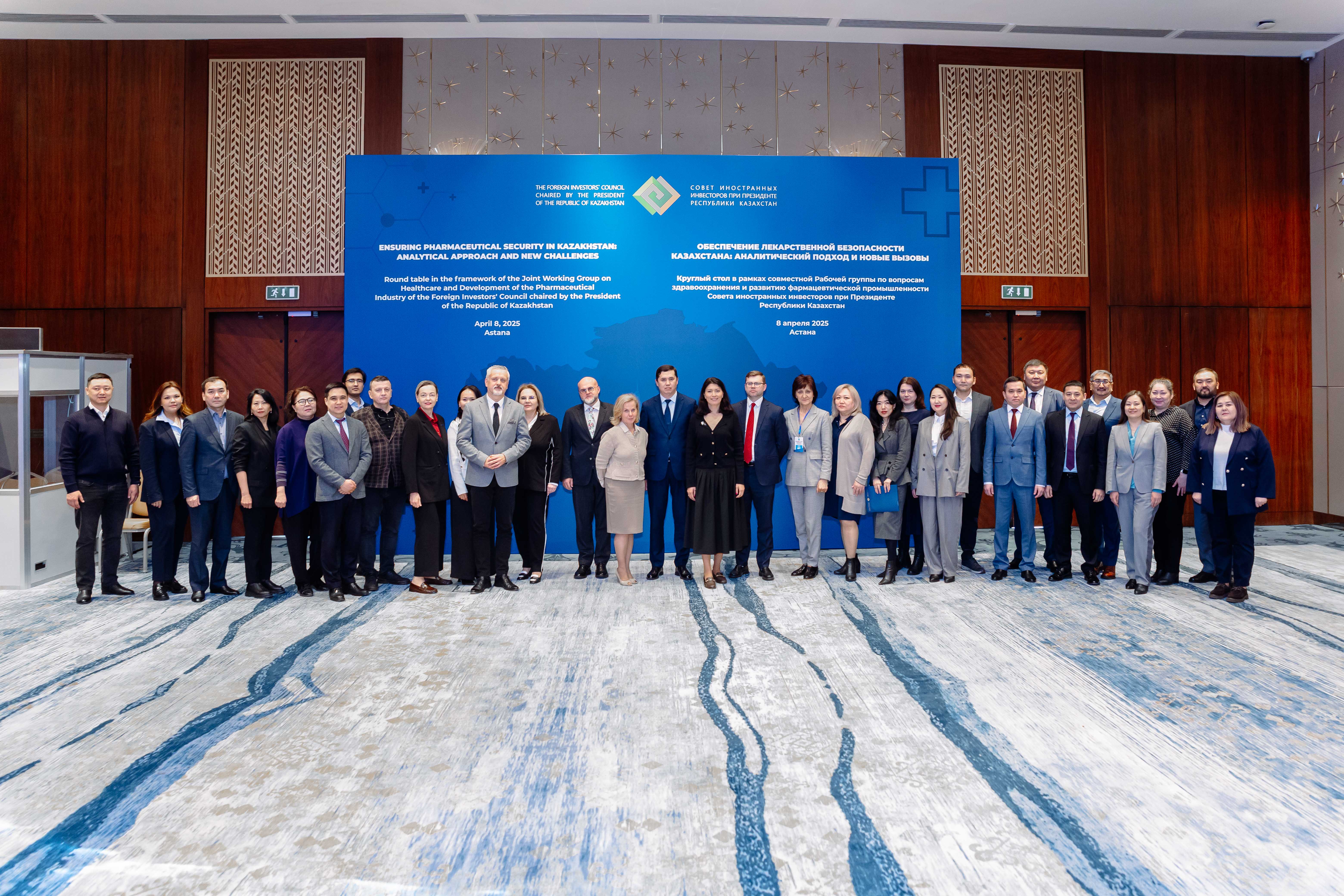
A
Roundtable discussion titled “Ensuring Pharmaceutical Security in
Kazakhstan: Analytical Approach and New Challenges” was held today in the
capital city. The event was organized by the Kazakhstan Foreign Investors’
Council Association (KFICA) with the support of the Ministry of Healthcare of
the Republic of Kazakhstan.
The
roundtable was held within the framework of the activities of the Foreign
Investors’ Council under the President of the Republic of Kazakhstan. It
brought together leading experts in the pharmaceutical sector, representatives
of international and domestic businesses, and relevant government agencies. The
main objective of the event was to develop systemic solutions aimed at
improving the sustainability of pharmaceutical supply, fostering local
production, and strengthening partnerships between the public and private
sectors.
“Pharmaceutical
security is not merely about access to medicines and medical devices. It is a
matter of public health and safety, the resilience of the national healthcare
system, and the independence and stability of the state in the face of global
challenges,” stated Vice Minister of Healthcare of the Republic of Kazakhstan
Timur Muratov.
Kazakhstan
has set the goal of increasing the share of locally produced medicines to 50%.
A significant portion of the healthcare budget is currently allocated to the
procurement of high-cost patented medicines. In this context, HTA is gaining
increasing importance as a tool for evaluating the clinical and economic
effectiveness of medicines purchased with public funds.
Healthcare
expert Krzysztof Łanda noted:“Kazakhstan, like many other countries, is focused
on strengthening its pharmaceutical security and creating conditions for the
sustainable development of the healthcare sector. It is essential that
companies investing in local production and scientific research are prioritized
in government policies—particularly in the areas of standard-setting, pricing,
and tender participation. This approach not only fosters economic patriotism
but also ensures greater resilience within the healthcare system. By
introducing mechanisms that encourage profit reinvestment and localization of
production, Kazakhstan will be able to reinforce control over critical
medicines and reduce dependency on external markets.”
Another
key topic of discussion was ensuring the uninterrupted supply of medicines to
pharmacies. Special attention was given to the Eurasian registration process,
with a significant number of medicinal products currently awaiting registration
within the EAEU framework by the end of 2025. Participants called for the
consideration of a transitional period to help maintain stability in
pharmaceutical supply and avoid the risk of shortages.
As
a result of the event, a set of recommendations was developed aimed at
increasing local content, strengthening pharmaceutical resilience, and
expanding international expert collaboration. The final package of proposals
will be submitted to the President of the Republic of Kazakhstan for further
consideration in the context of the Foreign Investors’ Council.